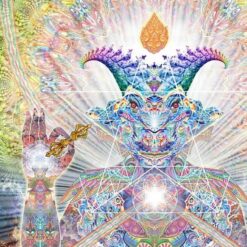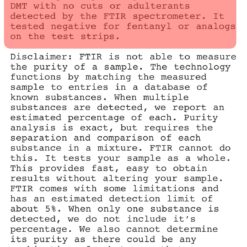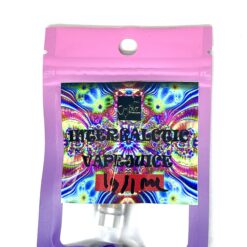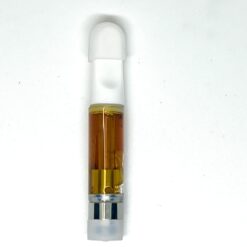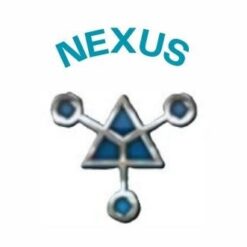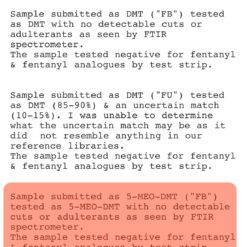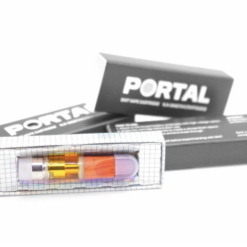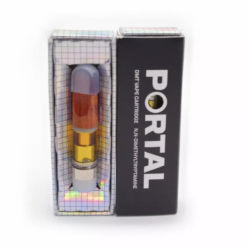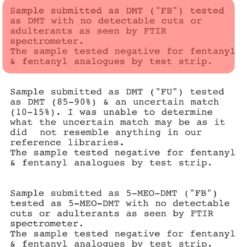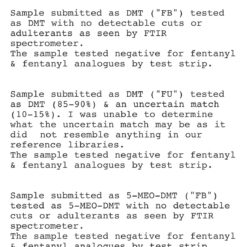DMT Vapes
DMT
The DMT experience is like blasting off into the unknown realms of consciousness, with your mind going on a crazy journey to other dimensions. It's like stepping through a portal to a whole new world without even leaving the room. DMT - also called the mystical molecule - provides an experience likened to being strapped on a rocket to your mind and launching into the cosmos.
Of course, such intense trips brought about by psychoactive drugs are not for everyone and not something to take lightly. But if you're looking for more-than-average hallucinogenic effects and a psychedelic experience, DMT may be the thing for you.
What is DMT?
DMT is a fast-acting psychoactive compound similar to psychedelic drugs like LSD and shrooms. This naturally-occurring, fast-acting psychoactive molecule is present in various plants and animals (including humans) and can also be synthesized in a lab.
DMT, also known as Dimitri, can make you feel like you're on other trippy drugs like LSD and shrooms. In some parts of South America, people have been using plants with DMT for hundreds of years in their religious ceremonies.
Like these "classic" psychedelics, DMT works by binding itself to a range of receptors in the brain, notably the 5-HT2A serotonin receptor. This can have the effect of altering visual perception, interoception (the way the mind processes what is happening in the body), and the way that the person under its influence perceives reality for the duration of the drug's effect.
But here's the kicker: the effects only last 20-30 minutes, which is way shorter than other psychedelics. So some people are exploring its potential for therapeutic purposes. Though it's not something to mess around with, so be careful if you try it.
How Does DMT Work?
DMT prevents serotonin from triggering its neuroprotective effects. Tryptamines cover a wide range of serotonergic or classical hallucinogens. Serotonergic hallucinogens alter serotonin levels, a neurotransmitter that sends messages to many parts of the brain and body.
The neurotransmitter serotonin controls mood, digestion, sleep, and other vital processes in the body. Both low and high levels of serotonin in the body harm the mind and body.
DMT is a nonselective agonist at the 5-ht2a serotonin receptor and likely other serotonin receptors. The psychedelic effects of DMT may be induced in part by stimulating this receptor. Simultaneously, the serotonin generated suppresses the release of dopamine and adrenaline.
What Are the Effects of DMT?
The effects of DMT can vary a lot from person to person, just like with most drugs. Some people like it, while others find it too intense or scary. People have described all sorts of crazy things happening when they take DMT. Some say they feel like they're zooming through a trippy tunnel of colours and shapes, while others say they've had out-of-body experiences and felt like they turned into something different.
Studies have shown that DMT is effective at treating "internalizing" diseases like depression and addiction by altering or stopping the ingrained neuronal process associated with them. This means that people who suffer from being stuck in destructive thought patterns can learn to break free. They are then more receptive to therapy, where they may discover new insights that would have been difficult to attain otherwise.
How is DMT Consumed and How Long Does It Last?
Chemically produced DMT typically appears as a white crystalline powder. The hue of the medication might range from yellow to pink. It can be smoked in a pipe, vaporized, or snorted. As an alternative, DMT can be administered. However, this practice is rumoured to carry a higher risk of adverse effects. Plants and vines are boiled to make a tea-like drink with varied intensities for religious ceremonies.
The effects of synthetic DMT can be felt quickly. It usually takes only a few minutes to feel the benefits, but it can take up to ten. Most plant-based beverages take between 20 and 60 minutes to kick in.
Several factors influence the depth and length of a DMT trip - how much you are using, how you use it, whether you've eaten or not, and whether you've taken other drugs. The duration of the effects of DMT inhaled, snorted, or injected is typically between 45 and 60 minutes. The effects of ingesting it in a drink like ayahuasca might last two to six hours. Speaking of ayahuasca…
Are DMT and Ayahuasca the same?
Not quite. Ayahuasca's main psychoactive ingredient is DMT, but taking a controlled dose of DMT in a therapy setting is very different from drinking an ayahuasca brew as part of a ceremony.
Ayahuasca is made by boiling the shrub's leaves Psychotria viridis, which contain DMT, with the stems of the vine Banisteriopsis caapi, which have more psychoactive properties and compounds that stop the body from breaking down DMT as quickly as it normally would.
This has two main effects: ayahuasca works when taken by mouth, while pure DMT does not, and an ayahuasca experience lasts a very long time compared to a DMT treatment. But a typical ayahuasca experience also includes uncertainty about how much to drink, how trustworthy the organizers and other participants are, and whether or not the whole thing is legal.
How to Use DMT Safely
If you're considering using DMT, it's important to remember that this naturally occurring psychoactive substance can be extremely powerful. To reduce your risk of having a bad reaction, there are a few steps you can take. First, it's recommended that you don't use DMT alone but rather with a group of people you trust. It's also a good idea to have at least one sober person present who can intervene if needed. When choosing a location, make sure it's safe and comfortable, and be sure to sit or lie down to reduce the risk of injury.
It's also important to avoid combining DMT with alcohol or other drugs. Additionally, it's best to use DMT when you're already in a positive state of mind. Finally, it's important to know when to avoid using DMT altogether. Suppose you're taking medication for depression or another condition associated with serotonin syndrome, taking a medication that interacts with DMT, or having a heart condition or high blood pressure. In that case, it's best to skip DMT altogether.
Why is DMT getting so much attention from scientists right now?
DMT has been used in ceremonies and rituals by people worldwide for hundreds of years. It is the main psychoactive ingredient in ayahuasca, the sacred tincture that the native Quechua people of South America use in religious ceremonies.
DMT is getting serious attention from scientists as a treatment for depression, just like LSD, psilocybin, MDMA, and ketamine. According to the World Health Organization, depression is the primary reason for disability worldwide. Clinical tests have shown that different psychedelic medicines are safe and work well.
In the clinical trials done so far, psychedelic medicines are both safe and effective as treatments. This has led many mental health professionals to hope they will change how we treat depression.
Research on DMT is still in its early stages, but recent Phase I trials done on healthy subjects who had never used psychedelic drugs before showed that the substance is safe and can be tolerated well. The research team is now putting people with moderate to serious Major Depressive Disorder through Phase II clinical trials to see how well it works as a treatment.

